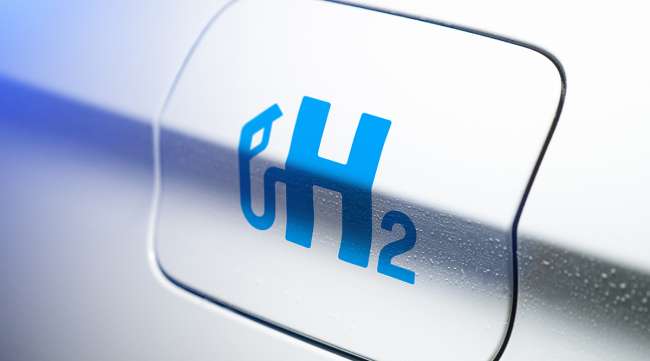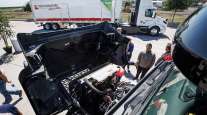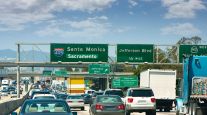Staff Reporter
Fuel Cell Experts Argue for Cleaner Commercial Trucks

[Stay on top of transportation news: Get TTNews in your inbox.]
The trucking industry needs to continue adopting electric technologies such as fuel cells in order to combat pollution, experts said April 14.
A webinar hosted by the California Hydrogen Business Council, along with ACT News, emphasized that the trucking sector needs to be more green and highlighted efforts already taken by companies and the government.
“We have an emissions problem, which is projected to get worse in the coming years,” said Alan Mace, market manager at Ballard Power Systems. “Global economies continue to entwine, and we are increasingly dependent on the movement of freight by trucks.”

Much of the trucking industry relies on older onboard technology for critical functions, which can hurt reliability and efficiency. So is it time for fleets and their technology vendors to implement faster replacement cycles for onboard tech? Seth Clevenger talks to Ray Greer of Omnitracs and Deryk Powell of Velociti. Hear a snippet, above, and get the full program by going to RoadSigns.TTNews.com.
Mace added freight volumes are expected to grow 40% by 2050 with a billion more people projected to live in cities by 2030 and e-commerce growing rapidly.
That means many more commercial vehicles on the road.
“With more vehicles on the road, emissions will increase,” Mace said. “Transportation already is responsible for 22% of energy-related greenhouse-gas emissions worldwide. Transportation emissions are increasing at a faster rate than any other sector.”
Mace argues that electrification such as fuel cell technologies is a solution to the problem. A fuel cell is an electrochemical device that converts the chemical energy of a fuel such as hydrogen and an oxidizing agent into electricity through a pair of redox reactions.
“To address these issues, the U.S. Department of Energy and other global experts have identified that electrification in transportation is a key pathway to achieving a lower emissions future,” Mace said. “We’re seeing the transformation to clean and efficient transportation has started with the electrification of all classes of vehicles including automobiles, trucks, trains, ships and specialty vehicles.”

California Hydrogen Business Council Development Specialist Cory Shumaker highlighted efforts already taken by federal and local agencies to push more environmentally friendly alternatives into the trucking industry.
“One of the reasons it’s very important to have fuel cell electric trucks on the road today is because there is desperate need for action, specifically in the South Coast Air Basin,” Shumaker said. “This is where there are a large amount of harmful particulate matter 2.5 NOx emissions from the trucks that go up and down the 710 freeway, bringing goods from the port to the railhead.”
Shumaker added that about 50% of goods from overseas come through the California ports before being distributed throughout the U.S.
He said this concentration of activities means some communities are impacted significantly more than others by air pollution. This led to government intervention.

“One of the great actions was the Cleaner Action Plan put together by the two ports of Los Angeles and Long Beach,” Shumaker said. “The most recent revision in 2017 established a goal of zero-emission trucks coming out of the ports by 2025.”
The California Air Resources Board has been advancing a proposal called the Clean Truck Rule, which would require manufacturers to sell zero-emissions electric trucks at an increasing percentage from 2024 to 2030.
CARB argues that the proposal would save the state’s trucking industry $4.9 billion and add $5.7 billion in statewide health benefits through 2040.
“Today, there are a few different heavy-duty fuel cell vehicles on the road,” Shumaker said. “That comes from a program that has been around since 2015 called Zero Emission Cargo Transport II. The DOT funded program ran also with some California state money.”
Want more news? Listen to today's daily briefing:




